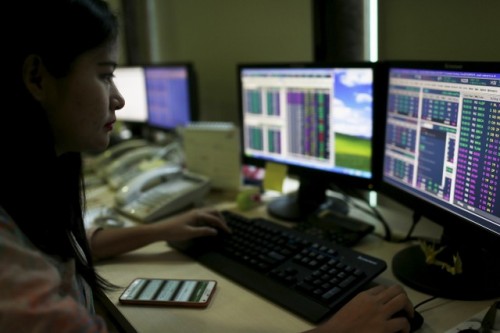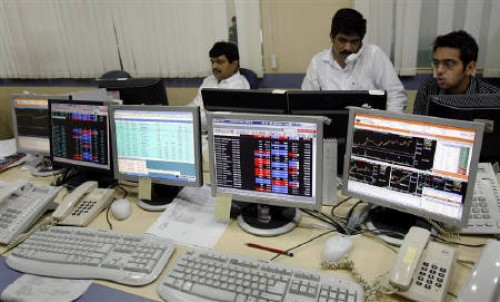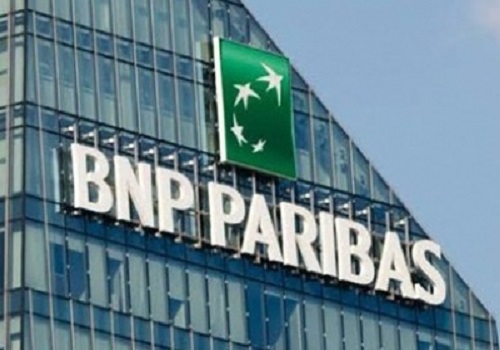Benchmarks plunge sharply on geopolitical uncertainty

Follow us Now on Telegram ! Get daily 10 - 12 important updates on Business, Finance and Investment. Join our Telegram Channel
https://t.me/InvestmentGuruIndiacom
Download Telegram App before Joining the Channel
Indian equity benchmarks plunged sharply on Monday, extending fall to the second straight session. The markets crash was mainly induced by heavy global sell off fuelled by escalating tensions between Russia and the West over Ukraine. Key indices made gap-down opening and stayed in red for whole day as India’s industrial production growth slowed down for a fourth straight month in December to 0.4 per cent mainly due to a poor performance by the manufacturing sector. According to the data released by the National Statistical Office (NSO), the manufacturing sector, which constitutes 77.63 per cent of the Index of Industrial Production (IIP), contracted by 0.1 per cent in December.
During the afternoon session, markets further fell as wholesale inflation across the country rose to 12.96 per cent in January, which was higher than expectation. The wholesale price index (WPI) grew 13.56 per cent during the month of December 2021, while the WPI for November last year was revised to 14.87 per cent from 14.23 per cent. The WPI in January 2021 was at 2.51 per cent. Some concern also came as data from depositories indicated that foreign portfolio investors (FPIs) have withdrawn a net Rs 14,935 crore from the Indian market in the first half of February. FPIs have been net sellers for the fourth consecutive month. As per data, FPIs took out Rs 10,080 crore from equities, Rs 4,830 crore from the debt segment and Rs 24 crore from hybrid instruments. Traders remained on sidelines ahead of CPI inflation data scheduled for Feb 14.
On the flip side, Asian markets settled mostly lower on Monday, while European markets were trading lower, as traders continue to react to U.S. inflation data and heightened geopolitical tensions between Russia and Ukraine. Worries about the fast spreading coronavirus Omicron variant's impact on global economic growth also continues to impact market sentiment. Back home, on the sectoral front, stocks related to agricultural sector were in focus with the commerce ministry’s statement that exports of agricultural and processed food products through Agricultural and Processed Food Products Export Development Authority (APEDA) are expected to exceed the target of $23.7 billion in the current fiscal (FY22). There was some reaction in edible oil industry stocks as India has cut its tax on crude palm oil (CPO) imports to 5% from 7.5%, as the world's biggest edible oil importer tries to rein in local prices of the commodity and help domestic refiners and consumers.
Finally, the BSE Sensex fell 1747.08 points or 3.00% to 56,405.84 and the CNX Nifty was down by 531.95 points or 3.06% to 16,842.80.
The BSE Sensex touched high and low of 57,191.91 and 56,295.70, respectively. There were 1 stocks advancing against 29 stocks declining on the index.
The broader indices ended in red; the BSE Mid cap index fell 3.51%, while Small cap index was down by 4.15%.
The top losing sectoral indices on the BSE were Realty down by 5.21%, Metal down by 5.05%, Basic Materials down by 4.25%, Bankex down by 4.25% and Finance down by 4.19%, while there were no gaining sectoral indices on the BSE.
The lone gainer on the Sensex was TCS up by 1.05%. On the flip side, Tata Steel down by 5.49%, HDFC down by 5.33%, SBI down by 5.20% and ICICI Bank down by 4.73% and IndusInd Bank down by 4.52% were the top losers.
Meanwhile, SBI Research in its latest report has said that given the record government borrowing plan of Rs 14.3 lakh crore for FY23, the Reserve Bank of India (RBI), which already holds as much as 17 per cent of the Rs 80.8 lakh crore outstanding government bonds, will have to find buyers for at least Rs 2 lakh crore, as banks typically opt for short-term debt of under 10-years.
The Budget 2023 has pegged the Centre's gross borrowing at a record Rs 14.3 lakh crore. Together with the states, the gross borrowing will be Rs 23.3 lakh crore and the net will be Rs 17.8 lakh crore for the next financial year. The Budget seeks to pay back Rs 3.1 lakh crore next fiscal, up from Rs 2.7 lakh crore this fiscal. With Rs 80.8 lakh crore outstanding government bonds, the RBI is the second-largest holder of them after financial institutions.
According to a report, the government securities maturing by 2061 are worth Rs 80.8 lakh crore as of the end of January. Of this, 37.8 per cent are held by banks, 24.2 per cent by insurers, which means 62 per cent of them are held by them, and the monetary authority holds as much as 17 per cent. It mentioned that as against this, the foreign ownership of G-secs are a paltry 1.9 per cent. This is the lowest among its peers as in Brazil, it is a high 44.5 per cent, 41.1 per cent in Mexico, 35 per cent in South Africa and 10.5 per cent in China. It also pointed out that had the government allowed the G-Secs inclusion into international bond indices, as widely expected, this will have seen at least Rs 1.5 lakh crore/ $15-20 billion of additional ownership by foreigners, helping the RBI manage the borrowing programme easily.
The CNX Nifty traded in a range of 17,099.50 and 16,809.65 and there was 1 stock advancing against 49 stocks declining on the index.
The lone gainers on Nifty was TCS up by 0.93%. On the flip side, JSW Steel down by 6.47%, HDFC Life Insurance down by 6.36%, Tata Steel down by 5.68%, Tata Motors down by 5.58% and HDFC down by 5.58% were the top losers.
European markets were trading lower; UK’s FTSE 100 decreased 146.48 points or 1.91% to 7,514.54, France’s CAC decreased 223.27 points or 3.18% to 6,788.33 and Germany’s DAX decreased 490.53 points or 3.18% to 14,934.59.
Asian markets settled mostly lower on Monday tracking Wall Street's overnight selloff followed by concerns over rising inflationary risks with escalating Russia-Ukraine tensions. Russia could invade Ukraine at any time and might create a surprise pretext for an attack, the United States said on Sunday, as it reaffirmed a pledge to defend every inch of NATO territory. Surging oil prices and the prospect of rapidly rising interest rates by the US Federal Reserve also weighed on investors' sentiments. Chinese shares declined due to heavy liquidation in property and financial firms after the central bank PBoC said it would not use real estate as a short-term method to stimulate the economy. Japanese shares tumbled following negative cues from Wall Street.
Above views are of the author and not of the website kindly read disclaimer










Tag News

Weekly Market Analysis : Markets strengthened recovery and gained nearly 2% in the passing w...



More News

Equity benchmarks endured it`s winning streak over sixth consecutive session - ICICI Direct








